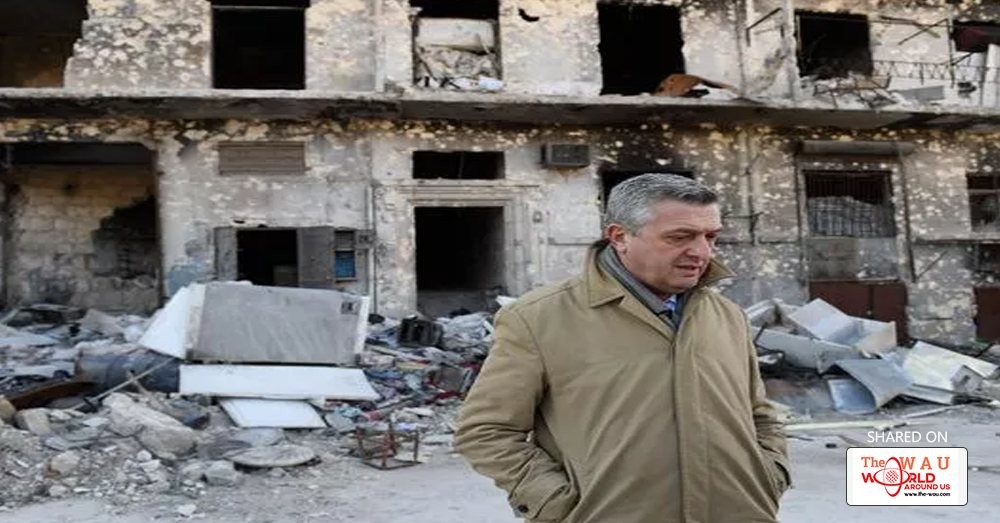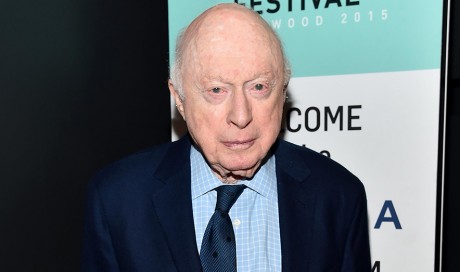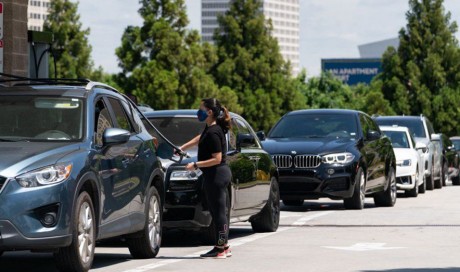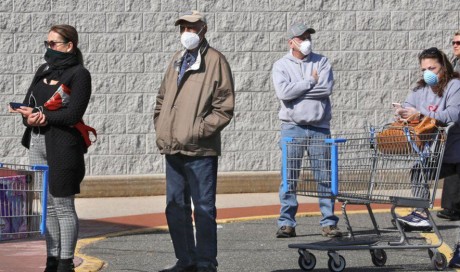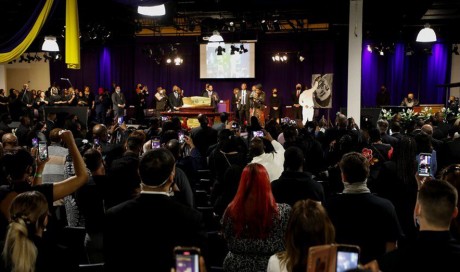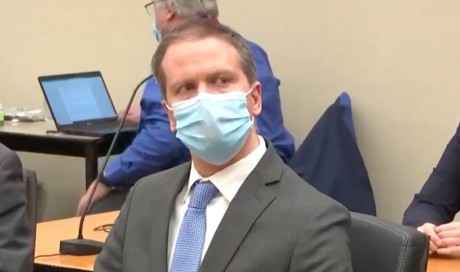President Trump’s pledge to cut U.S. foreign aid and support for emergency humanitarian assistance around the world loomed large over meetings the United Nations’ refugee chief held with economic development officials here Friday.
“I’m worried about possible reductions,” Filippo Grandi, the U.N.’s high commissioner for refugees, told USA TODAY. “If one government cuts back, I’ll have to cut back programs that help millions of people,” said Grandi, who is responsible for serving people fleeing conflicts in places like Syria, Yemen, South Sudan and North Africa.
Trump’s proposed budget would slash foreign aid by 37%. Critics, such as Sen. Lindsey Graham, R-S.C., have said that would hurt America's image as the world's foremost provider to the neediest people.
Grandi listed five things to keep in mind as Americans decide their role in the world:
•While the public discourse about refugees has become mixed with legitimate concerns about terrorism, security and economic migration, “most people become refugees against their will,” Grandi said. Refugees are fleeing "very serious dangers" and often made “a forced choice” to do so, he said.
He sought to illustrate this in February, with public appeals to the world community from Syrian cities that refugees had fled.
“The background (for these public statements) was total destruction,” he said. Yet, rather than seek better conditions in Europe or America, "many crossed the nearest border so they can go back when it’s safe again.”
•Foreign aid is crucial for two key reasons, Grandi said: "It's very much part of our culture and of American culture to help those in need, (and) a refugee population that is insufficiently supported creates instability."
Examples can be seen in South Sudan, where a famine threatens millions, in Somalia and Libya whose refugees have traveled in unsafe and over-crowded vessels across the Mediterranean Sea to seek shelter in Europe. People from Syria also continue to flee civil war and poured into neighboring Turkey, Jordan and Lebanon. A donor shortfall in food aid to Syrian refugees in 2014 contributed to the migrant crisis that caused chaos in Europe that year, Grandi said.
•Security concerns are legitimate, but the reality is that the number of terrorist acts committed by people posing as refugees is low, Grandi said. Far more terrorist acts were committed by second- and third-generation immigrants, which points to a different threat, he said.
“It means that someone was not integrated properly,” he said.
That’s less of a problem in the U.S. and Canada as it is in Europe, which has much to learn about handling refugees from the Western hemisphere, he said.
•The Trump administration, which is conducting a review of its asylum and refugee procedures, is justified to want to manage the flow, because the alternative is a perception of chaos, Grandi said.
His suggestion: “Do conduct this review, but once you’re satisfied the system is in place to avert danger, let’s re-start the program. (Because) the U.S. leadership role is very important."
•And while the U.S. donates the lion’s share, 20%, of the U.N.’s refugee agency’s $7.51 billion, other countries are contributing their share as well, especially the Nordic countries in Europe, the United Kingdom, Germany, Switzerland and the Netherlands, Australia and Japan.
Others, like South Korea, have gone in recent years from being an almost non-donor to being a very important donor, while some wealthy Arab nations, like the Gulf monarchies, are sometimes generous but inconsistent, Grandi said.
Part of his goal on this visit was to further talks with the World Bank and International Monetary Fund about expanding those economic development institutions’ support for refugee needs, especially with assistance for infrastructure, he said.
“I came here to make that case,” he said. “But we need the U.S. support.”
Share This Post

